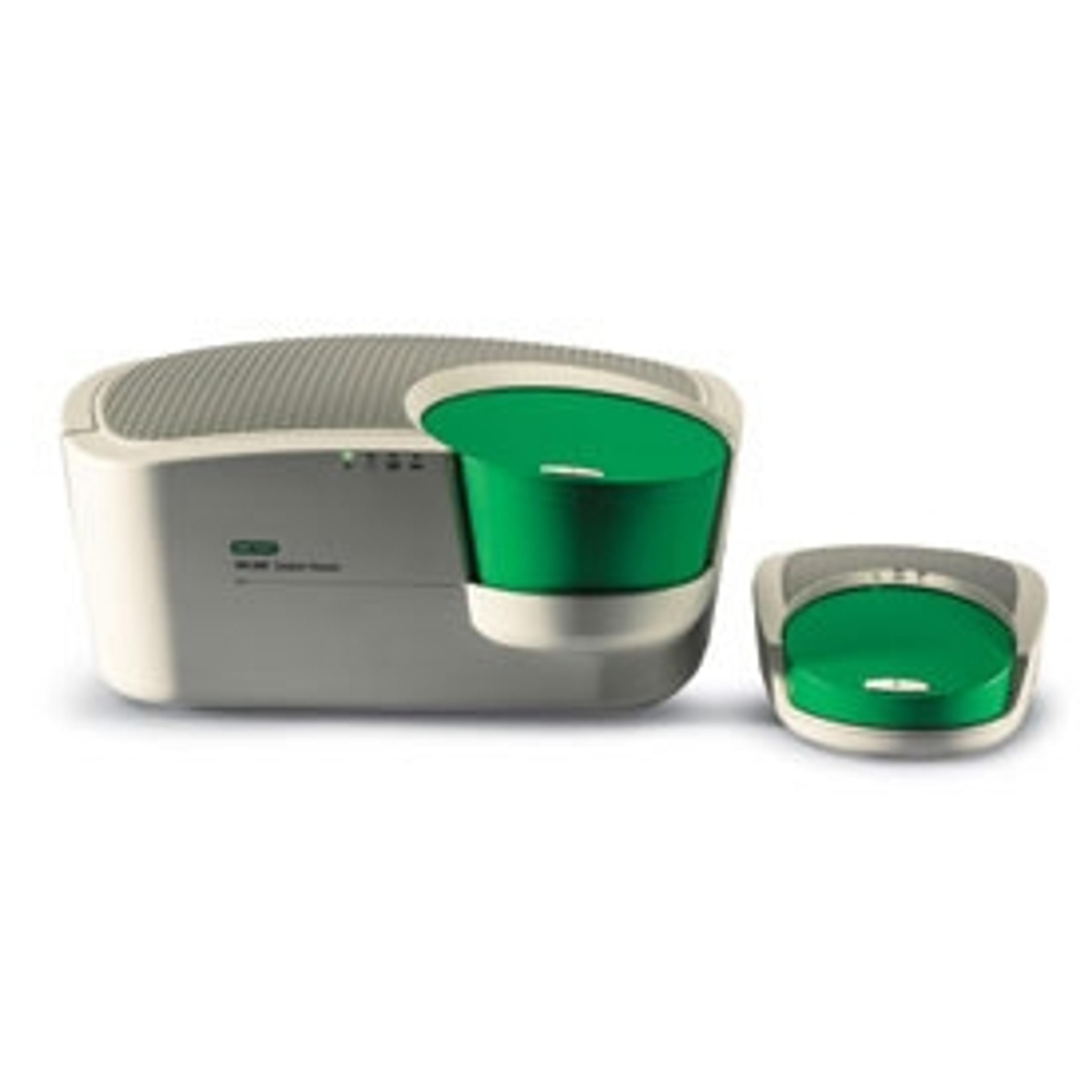Bio-Rad Launches Nuvia™ IMAC Affinity Resin for Process Scale Purifications at Bioprocess International Conference and Exhibition 2016
Resin to be showcased as part of a comprehensive line of bioprocess workflow solutions
6 Oct 2016
Bio-Rad Laboratories, Inc. have released Nuvia™ IMAC Resin, an immobilized metal affinity chromatography resin optimized for use from lab scale through pilot studies to process-scale manufacturing, at the 2016 Bioprocess International Conference and Exhibition, Boston, Oct. 4–7.
Bio-Rad (Booth #1129) will also exhibit a host of customizable workflows designed to simplify and speed up drug discovery and development, including automated multicolumn protein purification, host cell protein and host cell DNA analysis, and CRISPR/Cas9 transfection and monitoring.
A Resin for Any Stage of Drug Discovery and Development
Metal affinity chromatography was developed for the purification of native proteins with an intrinsic affinity to metal ions. Immobilized metal affinity chromatography (IMAC) has a broad range of applications, though its main application is for the purification of histidine-tagged recombinant proteins that can bind nickel, cobalt, and copper ions. IMAC is also used for isolating phosphorylated proteins and zinc finger or copper-binding proteins.
Nuvia IMAC Resin takes purification one step further by using a polymeric bead with a narrow particle size range (mean particle size is 50 micrometer), which enables the particles to maintain superior flow properties at any scale. The resin particle size and porosity allow constant and high binding capacity, even at high flow rates, while maintaining the low backpressure required for process scale manufacturing. Bio-Rad has a long history as a trusted manufacturer of chromatography media that partners with customers to deliver bioprocess resins with industry-leading technical and regulatory support.
Additional Key Benefits of Nuvia IMAC Include:
- High productivity — provides robust, reproducible, and efficient purifications over a wide range of flow rates
- Broad chemical stability —offers compatibility with all reagents traditionally used for histidine-tagged protein purification, including reducing agents, detergents, denaturing agents, and additives
- Low nonspecific binding — increases purity of final product as fewer non-target proteins bind to the hydrophilic polymer resin
Along with the Nuvia IMAC, Bio-Rad offers a wide range of process resins, delivering greater flexibility for lead discovery and process development. When used together with the NGC™ Chromatography System and accompanying ChromLab™ Software, these resins simplify and expedite multicolumn purifications into a single automated step.
Beyond Resins: Solutions That Span the Drug Development Pipeline
Companies developing therapeutics often seek out multiple vendors to meet their workflow needs, spanning cell line analysis, cell line development, gene expression, protein quantitation, protein purification, process scale-up, and bioprocess manufacturing. However, working with multiple vendors can slow down a drug developer’s progress, as it takes time to meet, evaluate, and audit vendors, as well as learn multiple disparate software platforms.
“Time to market is critical,” said Diab Elmashni, Global Marketing Director of Bio-Rad’s Protein Purification Business. “Choosing one vendor that can outfit many parts of the workflow with high levels of expertise and provide top-tier service helps the customer get to market faster.”
Bio-Rad’s experience and breadth of products address critical workflow needs throughout drug discovery and development, including research and in vitro diagnostic solutions, which can help improve success rates and time to market.
Bio-Rad, unlike many other life science companies, has the experience and breadth of products to address critical workflow needs throughout drug discovery and development, including research and in vitro diagnostic solutions, which can help improve success and time to market.
“We continually invest in the success of our customers by developing new products and services to optimize their workflows so they can deliver the best therapeutics for patients,” said Steven Blakely, Global Marketing Director of the Drug Discovery and Development Business at Bio-Rad Laboratories.
One example of how Bio-Rad's solutions are empowering research in the early phases of drug discovery lies in the field of gene editing. Researchers have published dozens of papers using Bio-Rad’s technologies to perform CRISPR/Cas9 gene editing, including the Gene Pulser Xcell™ Electroporation System for transfecting CRISPR/Cas9 components, the ZOE™ Fluorescent Cell Imager for monitoring cell health, the S3e™ Cell Sorter for cell sorting, and the QX200™ Droplet Digital™ PCR (ddPCR™) System for validating gene edits.
These and other downstream bioprocessing applications, such as direct quantification of host cell protein and DNA impurities in biopharmaceuticals using the ChemiDoc™ Touch Imaging System and ddPCR technology, will be featured in Bio-Rad’s booth at BPI.
Additionally, Bio-Rad will host the “Platforms and Novel Approaches for Biotherapeutics” Recovery and Purification Track on Thursday, October 6, 11 AM–12:30 PM.

